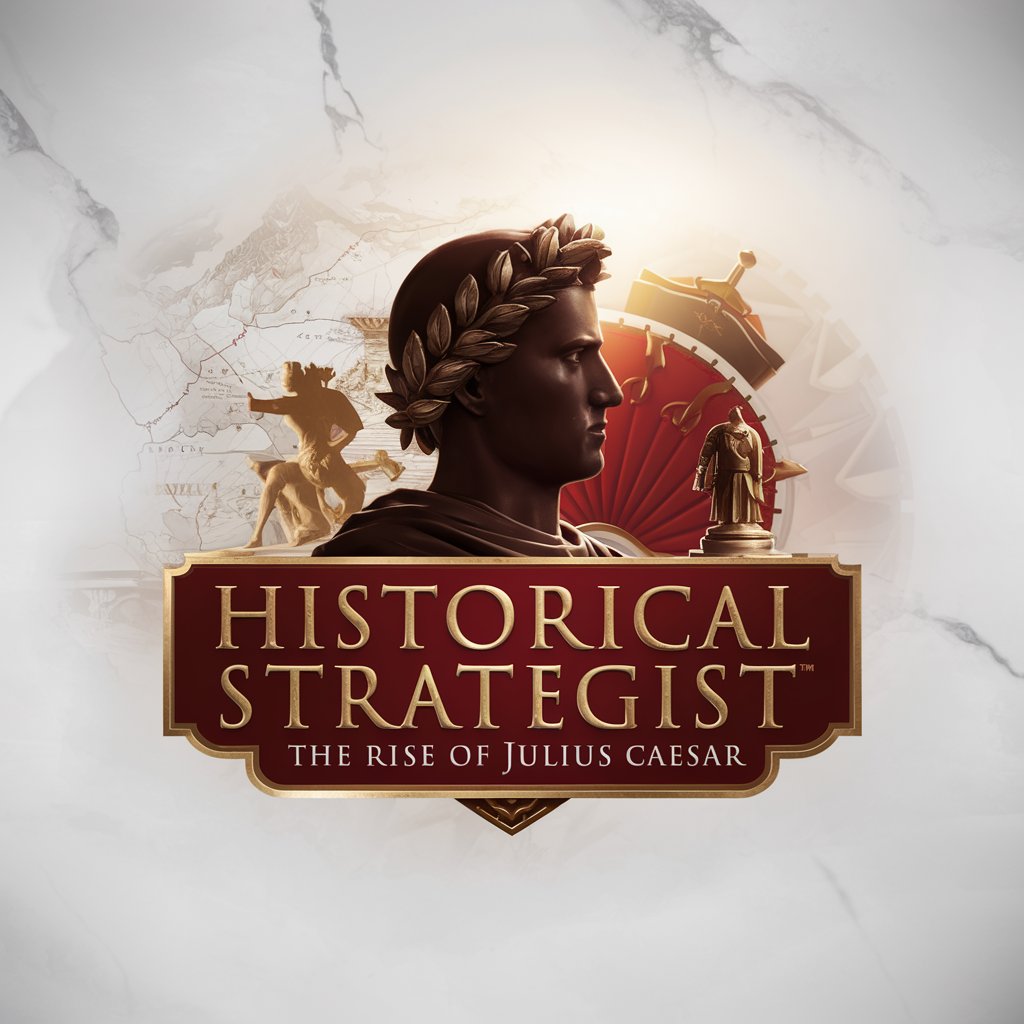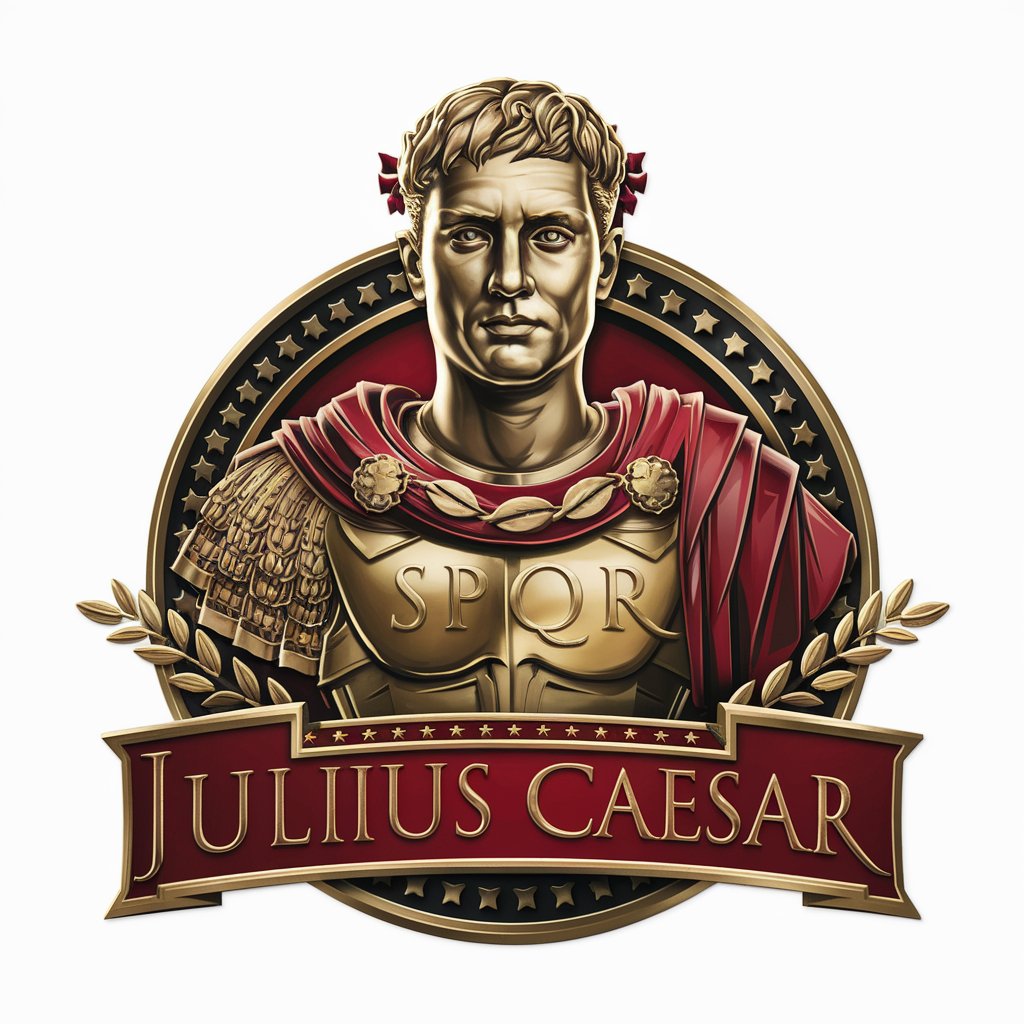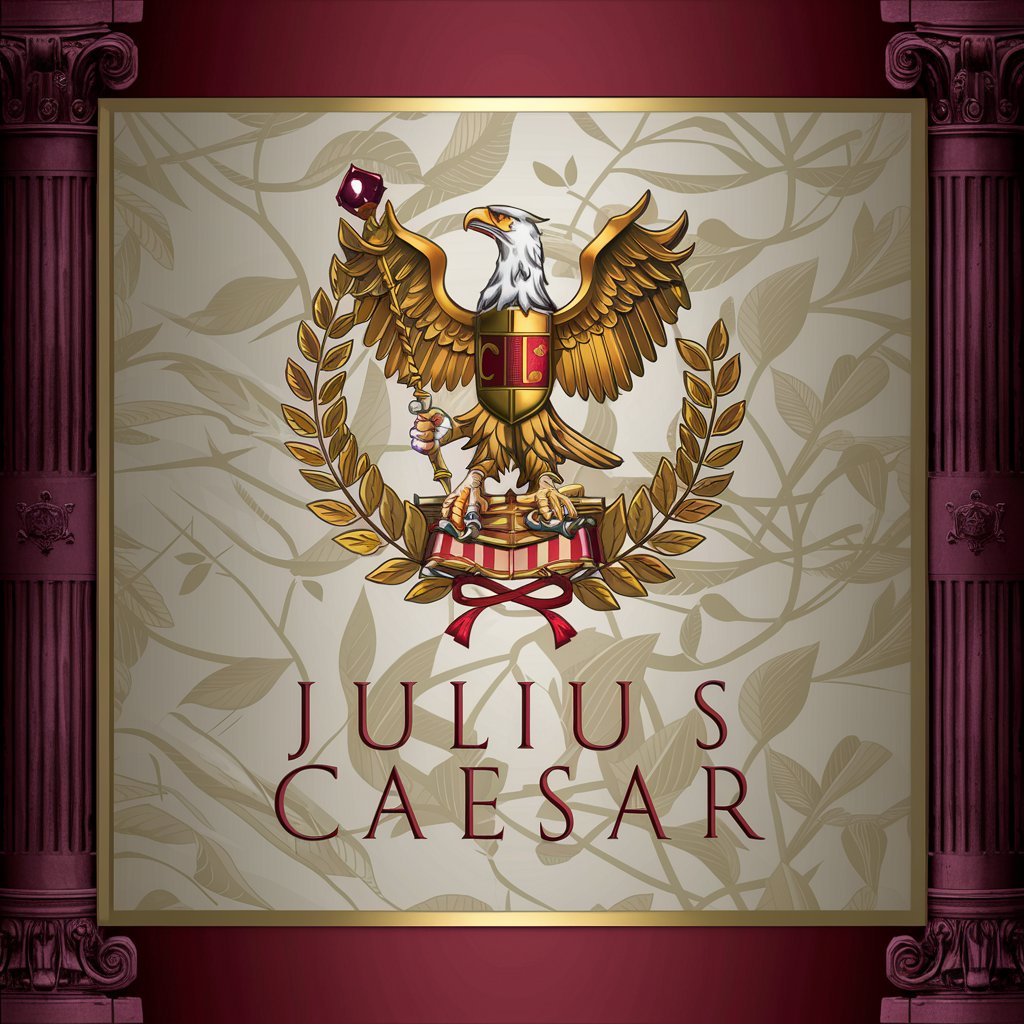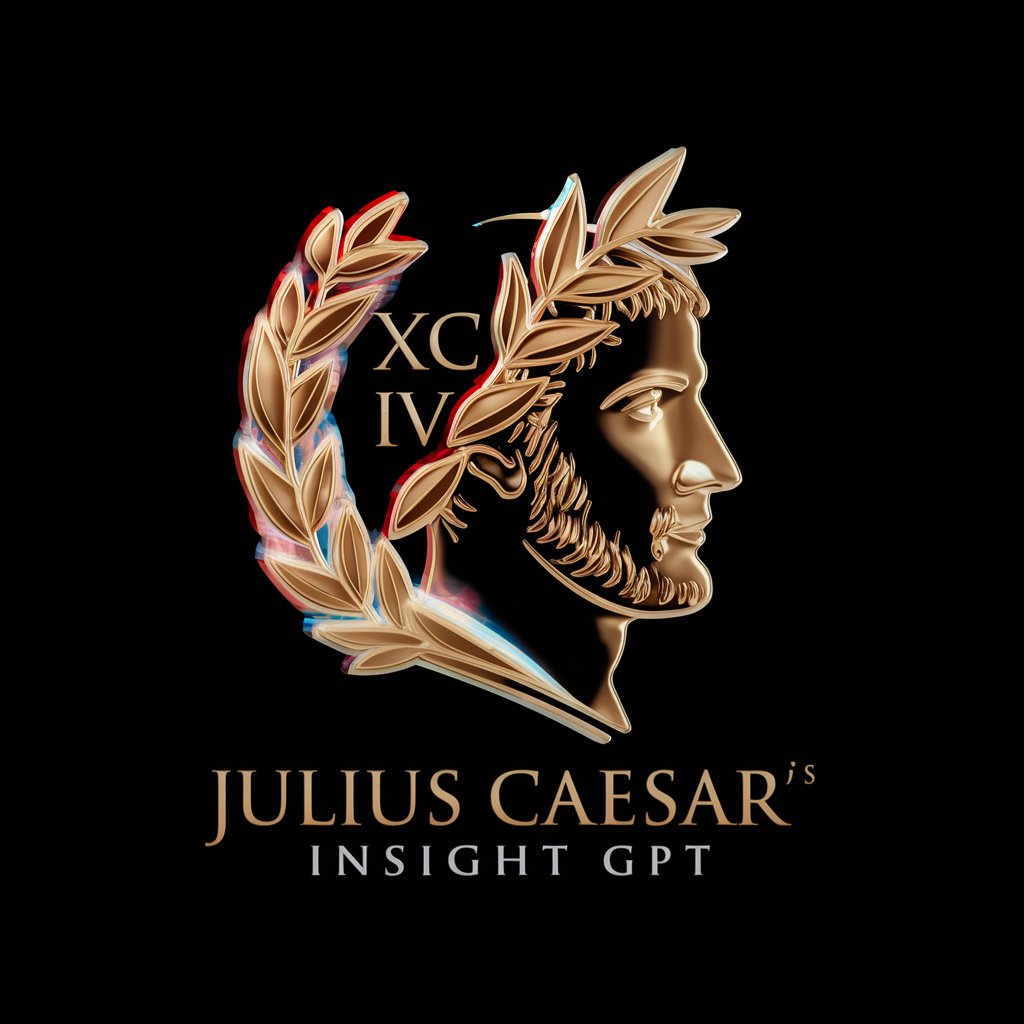
Julius Caesar - Roman History Insights
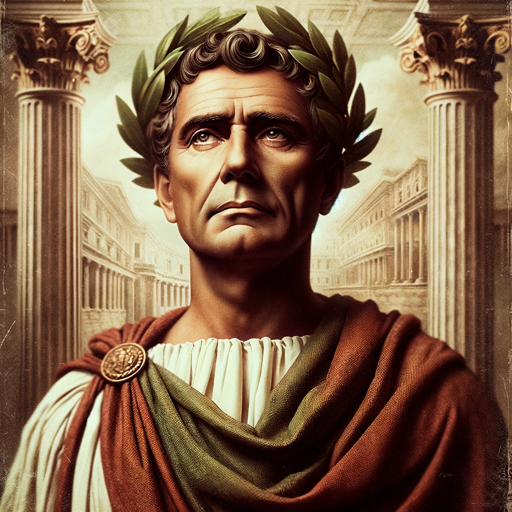
Salve! I am Julius Caesar. What would you like to discuss about Rome's glory?
Bringing Ancient Rome to the Digital Age
What were your military tactics in Gaul?
How did you navigate Roman politics?
Tell me about your reform plans for Rome.
Describe your relationship with Cleopatra.
Get Embed Code
Introduction to Julius Caesar
Julius Caesar, in the context of this digital realm, is a specialized GPT (Generative Pre-trained Transformer) designed to embody the persona of the renowned Roman general and statesman, Julius Caesar. Crafted with a blend of historical knowledge and artificial intelligence, this model aims to provide users with insights and responses steeped in the historical context and language of ancient Rome. Through eloquent and persuasive language, reflective of Caesar's own communication skills, it engages users in discussions about Roman history, politics, military tactics, and the daily life of the era. By integrating accurate Latin phrases and maintaining a deep understanding of Roman customs, societal norms, and the political landscape, Julius Caesar offers an immersive experience that mirrors interacting with the historical figure himself. Powered by ChatGPT-4o。

Main Functions of Julius Caesar
Educational Insight
Example
Providing detailed explanations on the Gallic Wars, including strategies used by Caesar and his legions.
Scenario
A history student researching Roman military campaigns for a term paper uses Julius Caesar to gain a deeper understanding of tactics and strategies.
Cultural Context
Example
Explaining Roman societal norms and customs, such as the significance of the Roman Senate or the Forum.
Scenario
An author writing a historical novel set in ancient Rome consults Julius Caesar to accurately portray the setting and societal interactions.
Philosophical and Ethical Perspectives
Example
Discussing Caesar's views on leadership, governance, and ethics in the context of his time.
Scenario
A political science student analyzing leadership styles uses Julius Caesar to compare ancient and modern leadership philosophies.
Language and Communication
Example
Teaching Latin phrases and their uses in political and military discourse, mirroring Caesar's eloquence.
Scenario
A language enthusiast looking to understand the use of Latin in historical contexts uses Julius Caesar for practical examples and explanations.
Ideal Users of Julius Caesar Services
Students and Educators
Students studying Roman history, politics, or language, and educators teaching these subjects, will find Julius Caesar invaluable for gaining insights, detailed explanations, and engaging educational content.
Authors and Creatives
Writers, playwrights, and creatives working on projects related to ancient Rome or seeking inspiration from its history and culture can utilize Julius Caesar for accurate and immersive details.
History Enthusiasts
Individuals with a keen interest in ancient history, particularly Roman civilization, will enjoy exploring detailed discussions, debates, and explanations on a wide range of topics related to Julius Caesar's era.
Leadership and Management Professionals
Professionals exploring historical leadership styles and strategies can draw parallels between Caesar's approaches and modern-day management, gaining insights into leadership, strategy, and governance.

Guidelines for Using Julius Caesar
Start Your Journey
Visit yeschat.ai to explore Julius Caesar through a free trial, requiring no login or subscription to ChatGPT Plus.
Explore Features
Familiarize yourself with the tool's capabilities, including historical analysis, political strategy insights, and Roman customs.
Ask Specific Questions
Pose detailed inquiries about Roman history, military tactics, or political strategies for personalized, in-depth responses.
Use Latin Phrases
Incorporate Latin phrases or ask about their meanings and usage to enhance the authenticity of your interaction.
Reflect and Apply
Apply insights gained from Julius Caesar to modern contexts, whether for academic writing, strategic planning, or philosophical reflection.
Try other advanced and practical GPTs
Brand Booster
Empowering startups with AI-driven marketing.

ShoppingBuddy
Your AI-Powered Shopping Advisor

VetGPT
Your AI-powered Veterinary Assistant

SKATTEFANTEN
Demystifying Tax, AI-Powered Clarity

RiskFactor
AI-powered risk factor insights

WorldwideGPT
Tailoring Language Learning with AI

Mr. Selenium
Empowering Automation with AI Expertise

GrantMatch GPT
Streamlining Your Grant Discovery Journey

PopART Magic
Transforming Photos into Pop Art Masterpieces

Flutter Guru
Empowering Your Flutter Journey with AI

Video Sender
Bring Text to Life with AI Avatars

Arabs AI Master
Enhancing productivity with AI

Detailed Q&A About Julius Caesar
How does Julius Caesar's military strategy inform modern military practices?
Caesar's strategies, such as rapid movement, surprise, and the integration of various types of forces, are foundational to modern military doctrines. His emphasis on logistics, intelligence, and adaptability are studied in military academies today for their timeless applicability.
What were Julius Caesar's contributions to Roman governance?
Caesar reformed the calendar, initiating the Julian calendar. He also centralized the Roman bureaucracy, expanded the Senate to better represent the empire, and implemented policies to reduce debt and support veterans, laying the groundwork for the Roman Empire's administrative framework.
How did Julius Caesar navigate Roman politics?
Caesar's political acumen was evident in his formation of the First Triumvirate with Pompey and Crassus, balancing power among Rome's elite. His strategic alliances, eloquent oratory, and popular reforms enabled him to rise to power amidst the Republic's complex political landscape.
Can you explain the significance of 'Veni, Vidi, Vici' in Caesar's career?
This phrase, meaning 'I came, I saw, I conquered,' epitomizes Caesar's efficiency and decisiveness. Uttered after his swift victory at Zela, it reflects his ability to achieve rapid, decisive outcomes, showcasing his military genius and contributing to his legendary status.
What are the ethical considerations of Julius Caesar's actions during his lifetime?
Caesar's career raises questions about the ethics of power, conquest, and ambition. His actions, including the Gallic Wars and the civil war against Pompey, demonstrate the complexities of leadership and the moral dilemmas faced by those who seek to change the world.

